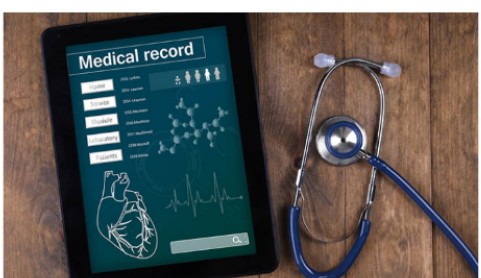Paper-based medical records have been used in healthcare for over a century, with folders stuffed full of handwritten clinician notes, test results, x-ray films, and more. While these provided a means of documenting patient care, paper records presented many limitations that could have improved the quality and continuity of care. Illegible handwriting, misplaced charts, lack of access to records across sites, and inability to systematically analyze data-constrained paper-based records’ utility.
The digital age has revolutionized medical documentation through the advent of electronic health records (EHRs). EHR integration provides real-time patient-centered records that provide clinicians with a 360-degree view of patients’ health data across multiple care settings.
Transitioning from paper to EHR development eliminates inefficient filing, improves clinical decision-making through better data access, reduces medication errors, and enables new avenues of analytics through “big data.”
EHR Growth in Health Care
The Health Information Technology for Economic and Clinical Health (HITECH) Act in 2009 was a watershed moment that drove rapid nationwide EHR adoption in the United States. Financial incentives were offered for implementing interoperable EHR systems capable of secure health information exchange. As of 2021, 96% of hospitals and over 78% of office-based physicians had adopted certified EHR technology.
EHR integration now plays a vital role in connecting discrete systems, allowing two-way data exchange for integrated patient care. Let’s explore why EHR integration matters and the intricacies of streamlining modern healthcare delivery in the digital era.
Importance of EHR Integration
Integrated EHRs with seamless health data exchange offer many perks:
Enhanced Patient Care
Continuous patient data availability optimizes treatment plans and medication management. This leads to enhanced care quality and patient satisfaction.
- Access to comprehensive records from any care setting
- Identifying and preventing dangerous medication interactions
- Analytics to pinpoint care improvement opportunities
Improved Diagnostics
Immediate access to complete clinical information helps clinicians make accurate diagnostic decisions. This facilitates rapid intervention when required.
- Retrieving diagnostic test results in seconds, not days
- Alerting providers to suspicious findings needing follow-up
- Avoiding costly, unnecessary duplicate testing
Population Health Management
Analyzing population trends allows tailoring interventions to community needs and at-risk groups. This enables more effective preventive care programs.
- Stratifying health risks based on clinical, social, and behavioral data
- Planning community outreach campaigns for health promotion
- Targeting chronic disease management resources efficiently
Lower Costs
Care coordination and documentation efficiencies translate into significant healthcare cost savings.
- Reducing transcription expenses through automated workflows
- Preventing high-cost hospital readmissions with better transition planning
- Increasing revenue cycle performance through accurate claims submission
Enhanced Reporting
Comprehensive analytics help providers measure clinical quality, utilization, and financial metrics. This supports value-based care and operational improvements.
- Monitoring quality indicators tied to reimbursement models
- Identifying high-volume service lines to optimize
- Enabling data-driven decision-making on staffing, equipment, etc.
EHR Integration Challenges
While EHR integration has immense value, nationwide interoperability remains an evolving goal with hurdles:
- Many EHR systems lack advanced integration capabilities.
- Healthcare organizations are reluctant to share data freely.
- Balancing open exchange and ironclad privacy
- Smaller facilities may lack funds for complex integration.
- Time-intensive interface testing between myriad systems
- Overcoming proprietary vendor resistance to open standards
- Changing regulations governing health data exchange and use
Seamless EHR Integration
Realizing seamless, nationwide EHR integration remains an evolving journey needing massive coordination. To get there, healthcare organizations must actively invest in integration tools, allowing interoperability between internal EHRs and external partners.
Vendors must decisively pivot from closed proprietary systems to open, standards-based approaches. Providers should proactively engage in health information exchange regionally and locally to share and access data.
- Policymakers play a crucial role via regulatory incentives, promoting standards adoption and data exchange.
- Patients, too, must willingly share health data while trusting robust privacy and security controls.
- With focused teamwork across healthcare, this vision of an integrated digital ecosystem can progressively become a reality.
This would transform healthcare delivery toward optimal efficiency, quality, and safety. Through integration, we can unlock EHRs’ immense potential to provide clinicians instant access to complete patient information.
This leads to fully informed diagnoses, safer care coordination between multiple providers, reduced duplicative testing, better population health management, and more. Ultimately, integration aims to put patients at the center of their care by securely connecting health data across every touchpoint in their health journey.
Challenges in Adapting to EHR Healthcare
Advancing national-scale interoperability is a modern Tower of Babel dilemma. While technical standards exist, inconsistent adoption obstructs seamless data exchange. Translating patient information between thousands of discrete systems from countless vendors remains complicated. As language barriers once thwarted progress, variable integration capabilities pose obstacles today.
Different from biblical times, the technology itself is not inherently problematic. Standards like FHIR and HL7 provide integration foundations. The trouble lies in motivating universal adoption.
Healthcare organizations vary wildly in size, resources, and motivations. Many limit exchange to required use cases like public health reporting, resisting broader sharing. Vendors cling to proprietary approaches that inhibit parity. Privacy and security concerns warrant caution but also stall progress.
- Overcoming proprietary mindsets resistant to open collaboration
- Ensuring equitable access for resource-constrained organizations
- Allaying confidentiality concerns balancing convenience and control
Nevertheless, the will to connect and coordinate patient care persists. Policy, financial incentives, and patient demand can compel alignment. This modern Tower of Babel can be overcome with persistence and collective action through ingenuity, compassion, and necessity. We can build a genuinely patient-centric healthcare system benefitting all by speaking a common language of interoperability.
Conclusion
Integrating EHR systems for comprehensive health data exchange is critical to streamlining modern healthcare. Although progress has been made, challenges remain. These require collaborative efforts between policymakers, healthcare organizations, health IT vendors, and standards groups.
Overcoming fragmentation can build a truly connected healthcare ecosystem, allowing patients, providers, and payers to benefit from EHR innovations that enhance outcomes, experiences, and cost-effectiveness. Seamless, secure nationwide interoperability remains a worthy vision needing sustained investments and dedication across healthcare.


 Home
Home










